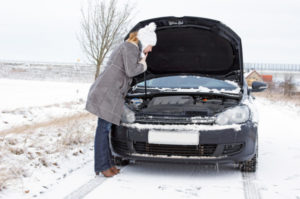 Temperatures are heating up and one of the best ways to escape the heat is by taking a drive. Whether you set off to the beach, a nearby tourist destination, or you decide you want to spend some time in an air-conditioned car – a summer drive can be the refresh you need. Before you gas up and hit the road, there are some summer driving tips to consider.
Temperatures are heating up and one of the best ways to escape the heat is by taking a drive. Whether you set off to the beach, a nearby tourist destination, or you decide you want to spend some time in an air-conditioned car – a summer drive can be the refresh you need. Before you gas up and hit the road, there are some summer driving tips to consider.
Making the Most of Your Summer Drive
Getting caught up in the excitement of a road trip can mean you overlook some important things. One of the worst things that can happen during a road trip is having your vehicle break down on a hot summer day. To avoid this mishap, we highly recommend checking the following before you head out.
- The Cooling System: Take a look at the coolant container under your hood and top it off if necessary. If you need to add coolant more than once in 6 months, or if you smell a sweet burning odor, you probably have a leak. Also, if you can’t remember the last time your coolant was flushed, it’s a good idea to have that done. Dirty fluid can clog parts of your cooling system and cause your vehicle to overheat.
- Tire Pressure: Be sure you check your tire pressure on all tires and make sure it is in the recommended range. Remember that there is a difference between the maximum pressure listed on the tire and the recommended pressure (for every 10 degrees tire pressure increases by one pound). If your tires were filled in the freezing cold this winter, they may be over pressurized in the summer heat. For those of you packing your car to the brim for vacation, it’s not a bad idea to look for recommended tire pressure for “heavy loads” in your owner’s manual. If you’re taking a long trip, you should invest in a full-size spare tire if you don’t have one already.
- The Oil: Driving long distances in excessive heat puts a lot of stress on your motor oil. If you are due for an oil change, don’t wait until after your trip. Oil that has been used for more than 3,000 miles breaks down more easily and can put more wear on your engine. If you are taking a heavy load or towing a trailer, some car manufacturers recommend using a thicker type of oil that is better suited for the heat.
- The Air Conditioning: Turn on your AC to make sure you are getting nice cold air out of the vents. If it is not as cold as you remember, it is probably time to have your AC recharged. If you are getting cold air, then your AC system is working and there is no need to get it checked. If your AC is not working and you think you can tough it out, be careful. In some newer cars, the AC is tied to several other components that may not function correctly if the AC is in need of repair.
Get a Vehicle Check-Up at Tommy’s This Summer
If you don’t have the time or the knowledge to check the major elements of your vehicle before you take your summer drive, it is important to trust someone who does. Tommy’s has the experience and the reputation to keep your vehicle road-worthy – no matter the season or the temperature. Here are some things we routinely check:
- The Cooling System: Including the radiator, coolant, belts, hoses, cooling fans, heater core and water pump.
- Tires: Check tread depth, uneven wear, and tire pressure.
- The Front End: Check ball joints, tie rod ends, and steering components.
- Change the Oil: Look for leaks.
- Check the Air Conditioning System: Refrigerant level, compressor clutch, and belts.
- Check the Tranny: Are you close to the recommended service interval? Is the fluid nice and clean? Any leaks?
Ready to cool off, see new sites, and maybe take a dip at the beach? Schedule your vehicle inspection or oil change today.

 Winter is here- which means it’s time to prepare your car for harsh temperatures. No matter the season, your car requires certain fluids to operate properly. Make sure your car is running right by visiting a trusted mechanic to check the following:
Winter is here- which means it’s time to prepare your car for harsh temperatures. No matter the season, your car requires certain fluids to operate properly. Make sure your car is running right by visiting a trusted mechanic to check the following: